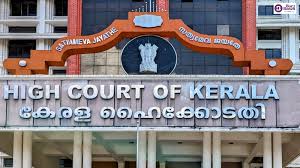The Supreme Court of India, on Friday, dismissed a petition challenging the Kerala High Court’s directive regarding the registration of FIRs based on depositions before the Justice Hema Committee on the sexual exploitation of women in the Malayalam film industry.
A Bench comprising Justice Vikram Nath, Justice Sanjay Karol, and Justice Sandeep Mehta observed that under criminal jurisprudence, a police officer or an in-charge of a police station is duty-bound to initiate an investigation under Section 176 of the Bharatiya Nagarik Suraksha Sanhita (BNSS), 2023, upon receiving information about a cognizable offence.
The Special Leave Petitions (SLPs) were filed by film producer Sajimon Parayil and two actors against the Kerala High Court’s October 2024 directive. The Supreme Court, while rejecting the plea, reaffirmed that it could not restrain the police from conducting investigations within their legal powers.
The Court, however, granted liberty to individuals who deposed before the Justice Hema Committee and later faced harassment to approach the Kerala High Court for appropriate relief. It also directed the High Court to examine grievances, if any, in conjunction with the FIRs registered based on the materials gathered by the Special Investigation Team (SIT) or without any supporting material.
On October 14, 2024, the Kerala High Court ruled that statements recorded before the Justice Hema Committee constituted ‘information’ as per Section 173 of BNSS, 2023, and directed the SIT to proceed under Section 173(3) of the statute. The order was issued on the grounds that the recorded statements indicated the commission of cognizable offences.
Producer Parayil approached the Supreme Court contesting this directive. Additionally, two women actors who had provided depositions before the committee filed petitions asserting that their statements were made out of ‘academic interest’ rather than for initiating criminal proceedings. One of the petitioners contended that her statements were based on hearsay accounts concerning the exploitation of other women, many of whom were unwilling to be part of a criminal investigation.
With this ruling, the Supreme Court has reinforced the legal mandate that information indicating cognizable offences must be investigated, ensuring that justice is pursued for victims of exploitation in the entertainment industry.



